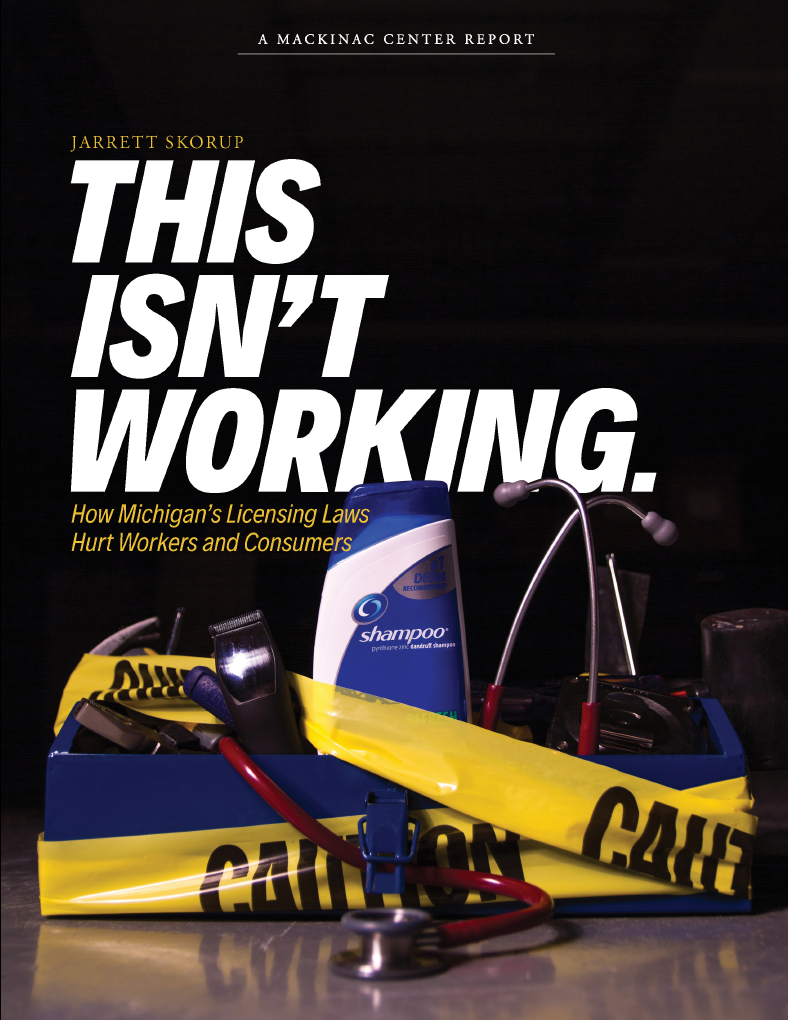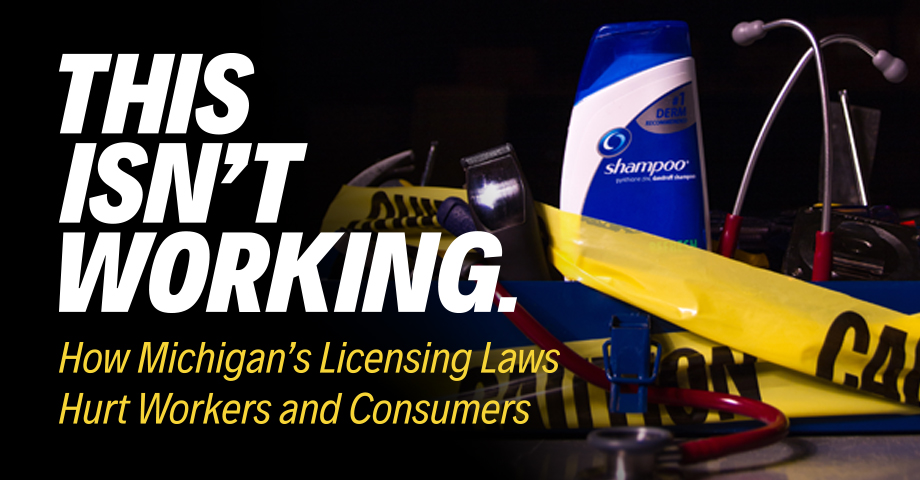Proponents of greater government intervention often argue that some freedoms are well worth sacrificing for greater social stability or public health and safety. Such is particularly the case with occupational licensing and other micro-regulations, where the government routinely imposes barriers with the stated aims of “protecting consumers” or “stabilizing industries.”
But while such regulations may overly technical and practical, the cost of the corresponding freedoms is far from abstract. It’s personal—felt in the form of new economic obstacles for the most vulnerable and greater protection for the privileged and well-connected.
In a new short film from the Mackinac Center, we can see some of these costs among a mix of Michigan workers and business owners. From a builder to a hair stylist to a pair of massage therapists, each has either faced fines or suffered unemployment due to excessive licensure restrictions.
For Mike Grennan, a builder with decades of experience, obtaining state licensure wasn’t possible due to a nonviolent criminal conviction in his past. As a result, he’s been unable to accept a wide range of jobs. “If it requires a permit, I can’t be involved with it,” he explains. “Let’s say I want to pick up and move a house. That’s ok. But if I want to demolish the house, I have to pull a permit.” As a result, he’s simply unable to compete and contribute his services.
But the laws aren’t just harming those with criminal backgrounds. For others in the film, it comes down educational or financial hurdles—struggling to either stay aware of current regulatory policy, afford the necessary schooling, or pass excessive exams that don’t actually pertain to the work at hand.
 “For about 20 percent of jobs here in the state of Michigan, people have to have a license in order to work,” explains Jarrett Skorup, author of a recent Mackinac study. “There are about 200 jobs that require a license, and that means educational requirements. It means mandated college degrees. It means fees, continuing education, and all these types of barriers to entry. What we see is as soon as the government requires a license, that immediately means 15 to 30 percent higher prices for consumers. It means less competition, and it means a higher recidivism rate—so actually a higher percentage of people returning to prison.”
“For about 20 percent of jobs here in the state of Michigan, people have to have a license in order to work,” explains Jarrett Skorup, author of a recent Mackinac study. “There are about 200 jobs that require a license, and that means educational requirements. It means mandated college degrees. It means fees, continuing education, and all these types of barriers to entry. What we see is as soon as the government requires a license, that immediately means 15 to 30 percent higher prices for consumers. It means less competition, and it means a higher recidivism rate—so actually a higher percentage of people returning to prison.”
According to the study, Michigan’s licensure regime “costs the state 125,480 jobs, and ensures citizens pay $10.4 billion annually in higher prices (or about $2,700 annually per household). The state also spends more than $150 million directly on licensing individual occupations.”
Thankfully, just last September, Gov. Rick Snyder took action to remedy some of the issues specific to criminal justice, improving access to occupational licenses and state jobs for those with criminal backgrounds.
“The state licensing bureau will remove a box on occupational licensure applications that asks if the applicant was convicted of a felony,” explains Derek Draplin. “In addition, the governor issued an executive directive ordering state agencies to remove the felony question from initial state employment applications.” Snyder hopes to set an example not only for the state government but for Michigan’s business community. Noting that getting a job is “an essential part of successful re-entry for most prisoners.”
The move comes as part of a larger effort by the state’s Office of Regulatory Reinvention, which aims “to ensure that Michigan’s regulatory environment is simple, fair, efficient, and conducive to business growth and job creation.”
The real-life consequences of these sorts of quiet regulations can be crippling to economic opportunity and mobility, not to mention our mindsets and imaginations about work and vocation in general. Further, as Skorup demonstrates in the study, such licensure requirements haven’t even proven themselves in the areas they aim to promote—showing no impact whatsoever on improved public health and safety, for example.
The topic of occupational licensing isn’t known for ranking high on the nation’s list of hot-button issues, but if we truly aim to expand opportunity for all, especially the marginalized and disadvantaged, it’s a fight worth waging.

